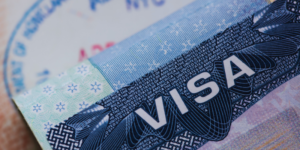Saudi Arabia has been undergoing transformative changes as part of its Vision 2030 initiative, with immigration policies playing a pivotal role in shaping its economic and social landscape. The new immigration policies affecting expatriates are designed to align with the Kingdom’s goals of economic diversification and inclusivity while addressing workforce dynamics.
In this comprehensive guide, we’ll explore the impact of Saudi Arabia’s new immigration policies affecting expatriates, highlighting key changes, their implications, and practical advice for adapting to this evolving framework.
Overview of Saudi Arabia’s Immigration Policy Reforms
Saudi Arabia’s immigration policies have long been governed by the Kafala (sponsorship) system, which placed significant control in the hands of employers. However, recent reforms aim to modernize this framework to attract and retain global talent, fostering a more dynamic workforce.
Goals of the Reforms:
- Economic Diversification: Reducing reliance on oil by promoting sectors like tourism, healthcare, and technology.
- Workforce Mobility: Enhancing labor rights and allowing expatriates greater job flexibility.
- Inclusivity: Making Saudi Arabia more attractive for global talent through simplified processes and incentives.
These reforms signal a shift towards a more progressive and sustainable immigration system.
Key Changes in Immigration Policies for Expatriates
1. Abolition of the Kafala System
- Expatriates can now switch employers without needing prior approval from their sponsor under specific conditions.
- This change empowers foreign workers with greater freedom and job mobility.
2. Flexible Residency Options
- Introduction of the Premium Residency Program (PRP), offering long-term residency without sponsorship.
- Two types:
- Renewable residency permits (annual).
- Permanent residency permits (lifetime).
3. Streamlined Work Visa Processes
- Simplified documentation requirements for work visas and renewals.
- Online platforms like Absher and Qiwa facilitate quicker processing times.
4. Revised Dependents’ Policies
- Dependents of expatriates now enjoy expanded rights, including access to education and healthcare services.
- Adjustments to dependent fees aim to strike a balance between affordability and government revenue.
5. Support for Remote Workers
- Introduction of digital nomad visas under specific conditions to attract freelancers and remote employees.
6. Enhanced Labor Rights
- Workers are entitled to contracts outlining their rights and obligations, ensuring transparency.
- Mechanisms to address grievances and disputes have been strengthened.
Implications of the New Policies on Expatriates
Benefits for Expatriates
- Increased Mobility: Easier job transitions lead to career growth opportunities.
- Legal Protections: Greater safeguards against exploitation or unfair treatment.
- Access to Long-Term Residency: Expats can plan for a stable future in Saudi Arabia.
Challenges for Expatriates
- Understanding New Systems: Navigating platforms like Absher and Qiwa requires familiarity.
- Costs of Premium Residency: The PRP comes with substantial fees, making it less accessible to low-income workers.
- Market Competition: Reforms attract global talent, intensifying competition for jobs.
Impact on Employers
- Employers must adapt to new compliance standards, ensuring contracts and labor rights align with the reformed policies.
How to Adapt to the New Immigration Policies
Adapting to Saudi Arabia’s new immigration policies affecting expatriates requires a proactive approach. Here’s how:
1. Stay Informed
- Regularly check updates on government portals like Absher and Ministry of Human Resources and Social Development (MHRSD).
- Subscribe to newsletters from expatriate forums or legal advisors.
2. Leverage Digital Platforms
- Use online tools like Qiwa for job searches and contract renewals.
- Familiarize yourself with e-services for dependents’ fee payments and visa applications.
3. Enhance Your Skills
- Invest in professional development to stay competitive in Saudi Arabia’s evolving job market.
- Consider certifications in high-demand fields like tech, healthcare, or engineering.
4. Network Strategically
- Join expatriate groups on platforms like LinkedIn or local communities to stay connected and informed.
- Attend events like the Virtual Immigration Fair 2024 to explore opportunities.
5. Consult Legal Experts
- Seek advice from immigration lawyers or consultants to understand how reforms specifically impact your situation.
FAQs on Saudi Arabia’s Immigration Policy Changes
1. What is the Premium Residency Program (PRP)?
The PRP allows expatriates to live in Saudi Arabia without a sponsor. It offers renewable annual or lifetime options but comes with a significant fee.
2. How do the new policies impact dependents of expatriates?
Dependents now have improved access to healthcare, education, and legal rights, but associated fees remain a consideration for families.
3. Can expatriates switch jobs under the new system?
Yes, expatriates can change employers without sponsor approval, provided they meet certain conditions like completing their current contract.
4. Are there any new visa options for freelancers?
Yes, digital nomad visas are being introduced to attract remote workers, subject to specific eligibility criteria.
5. What are the biggest challenges of adapting to the new policies?
Understanding new systems, covering premium residency costs, and navigating increased market competition are key challenges for expatriates.
Conclusion
Saudi Arabia’s new immigration policies are a significant step towards inclusivity, flexibility, and economic growth. While these reforms bring numerous benefits to expatriates, they also pose challenges that require adaptability and informed decision-making.
By staying updated, leveraging digital tools, and investing in personal development, expatriates can navigate these changes effectively and continue to thrive in the Kingdom.
The transformative journey of Saudi Arabia’s new immigration policies affecting expatriates reflects the Kingdom’s ambition to create a dynamic and diverse workforce. Whether you’re an expatriate or considering moving to Saudi Arabia, understanding these policies is crucial for long-term success.




